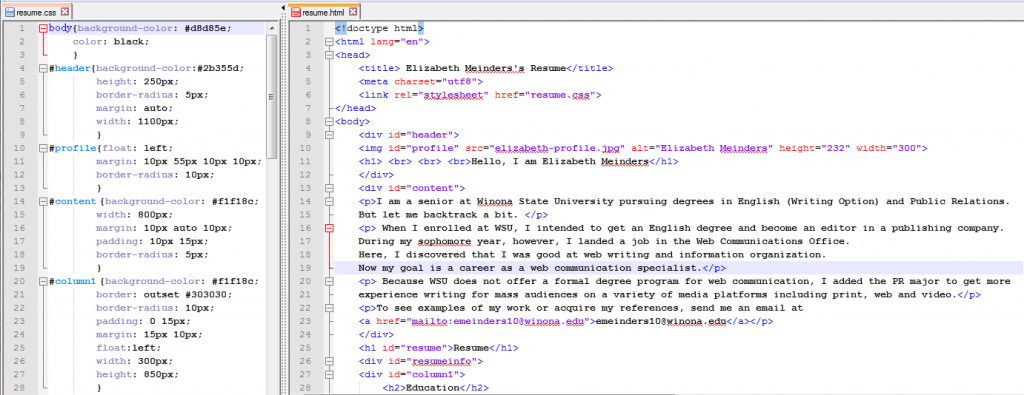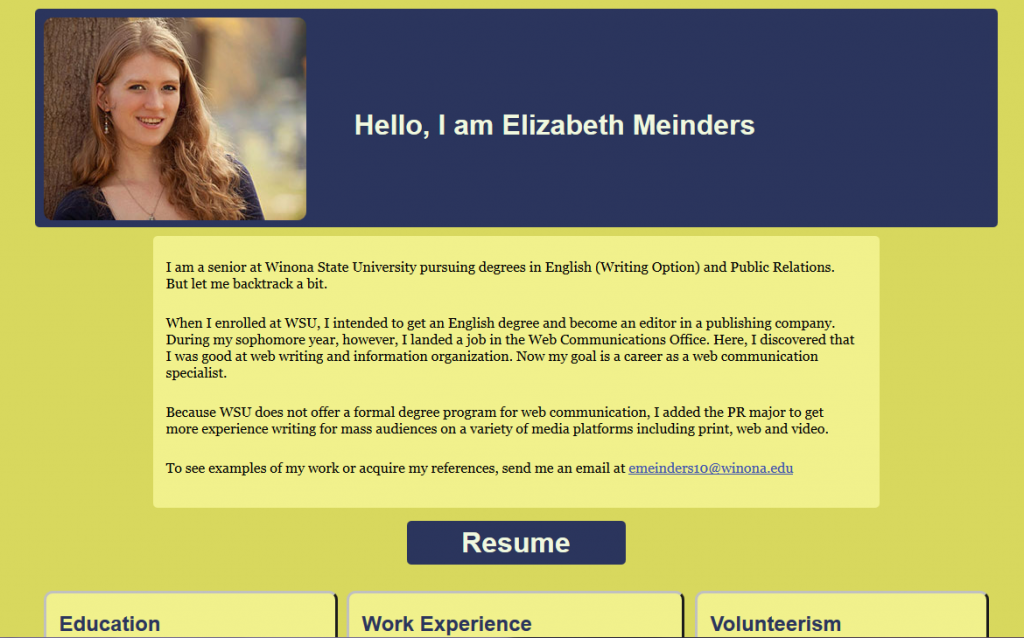
This corgi knows what’s up with coding! Photo Credit
You don’t see it, but this blog is built with computer code. So is Facebook and Hulu and D2L. Every day you are using hypertext markup language (HTML) and cascading style sheets (CSS) but do you have any idea how they work?
Steve Jobs once said that “I think everybody in this country should learn how to program a computer because it teaches you how to think.” I, for one, never thought that I would find myself in a coding class yet here I am in Computer Science 116: Intro to Web Technology.
And I have to say, it’s been such an eye-opening experience that I’m with Steve Jobs: learning to code will benefit you even if you are not a planning a career in computer science.
Coding Builds Your Digital Literacy
Digital literacy is generally defined as the having ability to use a range of digital technologies “to find, evaluate, create, and communicate information” as well as participating in online communities and understanding the social issues that digital technologies cause.
In our tech-dependent world, digital literacy is an essential skill to have simply so you can be a competent digital consumer and creator.
That’s where know how to code comes in good skill to have in a tech-heavy world—part of digital literacy is knowing how to make sense of cyberspace and use it effectively for your purposes. “If you don’t know the basics of computer technology, you are at the mercy of those who do,” says WSU computer science professor Dr. Joan Francioni, “and not everyone is working in your best interests.”
Coding Gives You Creative Independence
Say you wanted to make a website or a build your own blog—where would you start? Sure, WordPress, Weebly and Wix are excellent web-authoring services that provide you with the basic tools and hundreds of templates to get started, but what if you wanted your site to look truly unique
HTML and CSS gives you full creative control over your web project. You want a three column layout that floats over a background image? You can do that! It’s amazing to see the code you write appear in a browser window.
Take the resume page I just built in CS 116 for example. I started with a blank page in my Notepad++ program and then went to this:
The pure code looks quite intimidating, but when viewed in a browser it turns into this:
Pretty cool, huh? Now just imagine what you could do!
Coding Helps You Find a Job
Obviously, you need to know how to code if you want to be a programmer, but you may find knowing how to code useful in other professions as well. If you are going into a communications field, you might find yourself in charge of your employer’s website. Or if you want to run your own business someday, you are going to need a website to market your products or services.
Even if you don’t end up using actual HTML/CSS in your career, learning to code teaches you other valuable skills such as understanding big data and managing databases. It can also teach you problem solving skills and logical methods of testing out ideas.
If you are interested in learning the basics of HTML and CSS, definitely register for CS 116 next semester. Or, you can teach yourself to code through free, online resources such as Code Academy and Code.org or inexpensive apps.
And if you still don’t believe me that coding is a useful skill to have in the 21st century, maybe these famous and successful people will change your mind.

